If you’ve been following this blog, you may remember I recently did a post about the scripts for the 2018 BBC miniseries of Les Misérables, which are available to read online. Sometime before then, I did a post about which movies I’ve covered on here had the best adapted screenplays. You probably gathered from that that I enjoy reading scripts online. That’s to say, I enjoy reading them when they’re for movies I think are good or at least OK. I wish there were more available for free besides the ones put up for award consideration, but naturally a lot of the ones expected to win awards are based on capital-C Classic books and it’s even more obvious from this blog that I’m interested in those. Which of them are the best reads? Here’s my list. I’ve included links to each one, so if any sound intriguing to you, give them a click. You may find the screenplay format as enjoyable to read as I do. (Then again, you may not.) Note that this list is in alphabetical order as I find it too hard to rank all of them. The last one mentioned isn’t necessarily the best and the first one isn’t necessarily the worst. [1]Well, the last one might be true, come to think of it. Also, I’m not including screenplays on archive.org since you have to be a member to borrow them. If I did include them, there would be more Shakespeare on this list.
Honorable Mentions

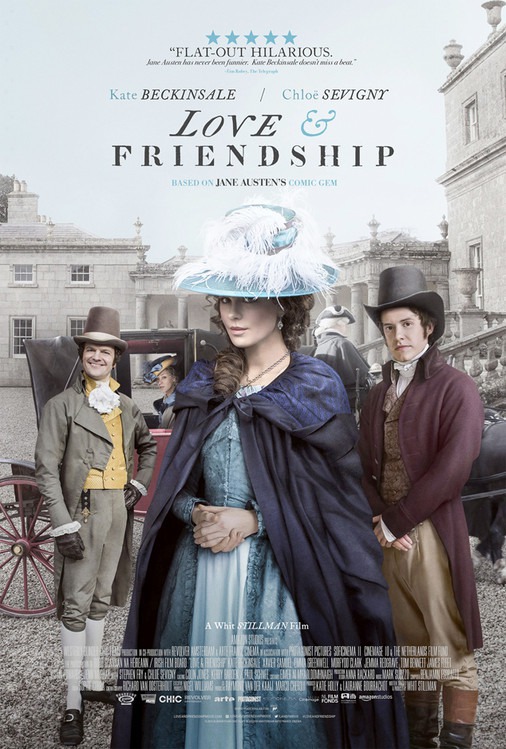
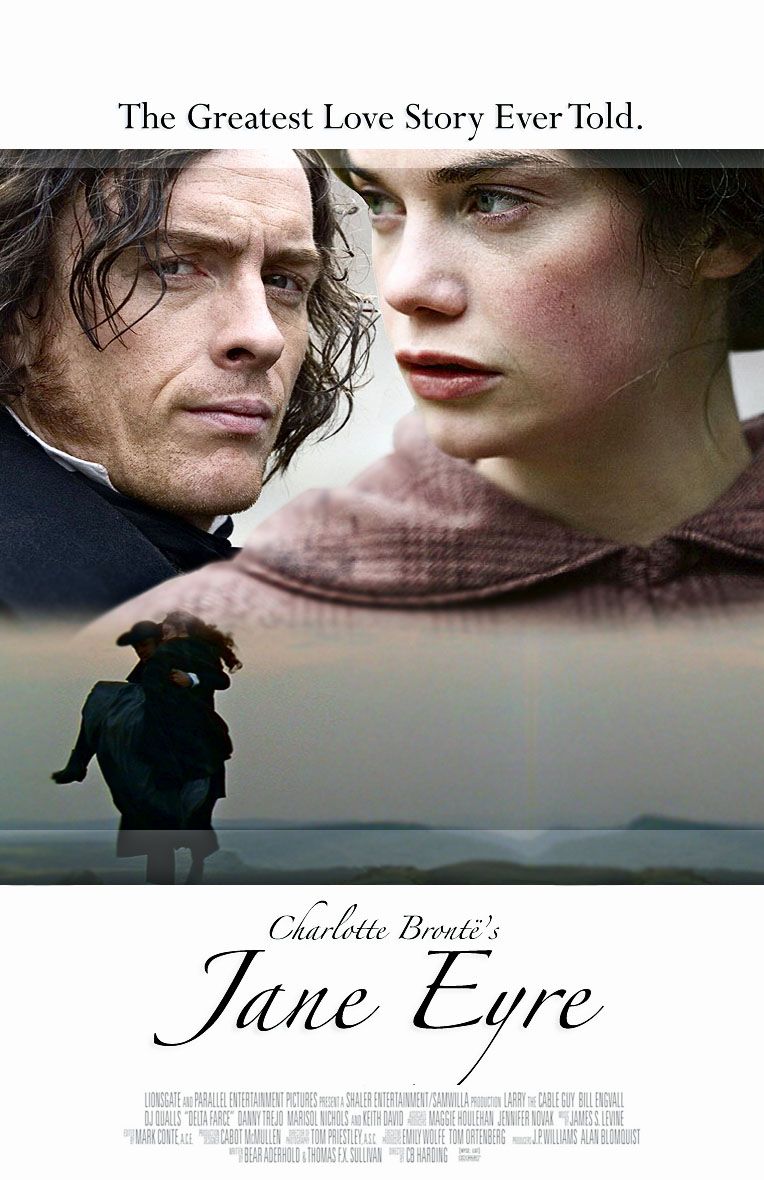
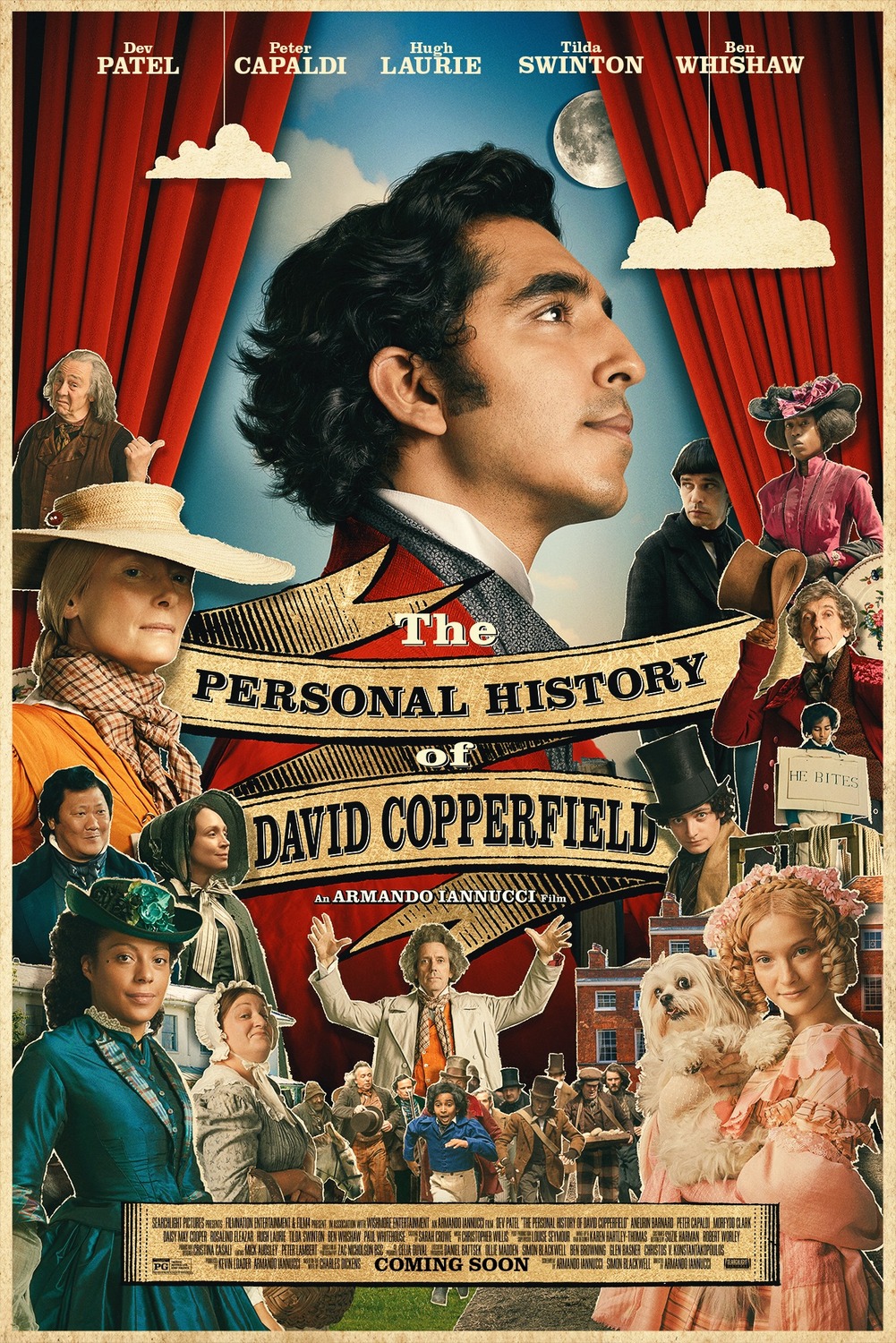
While my favorite adaptation of Jane Austen’s Emma is Douglas McGrath’s 1996 movie, its script is sadly not online for everyone to read. Eleanor Catton’s script for the 2020 movie is though, and while it’s not as inspired as the other Austen-inspired screenplays on this list, it’s quite engaging and does a good job of restructuring the novel as a movie. There’s an argument to be made that it tells the story better than McGrath’s script did-indeed, it does a better job than the final movie did. Many scenes and lines were cut that shouldn’t have been in my opinion. Catton also relies on the actors’ faces to convey their inner lives a bit too much for her own good and, if you ask me, the 2020 movie’s cast let her down, so reading this script is actually more satisfying than watching the film.
I think I’ve written enough about Whit Stillman’s Love and Friendship in the past, though I do regret that every time I write about it, I have to mention that I don’t think it quite as great as it could have been. As it is, it’s still wonderfully quotable thanks to both the source material and the adapter.
Part of me feels like Moria Buffini’s script for the 2011 movie, Jane Eyre, deserves more than just an honorable mention. The only reason I don’t favor it more is that I’m not a huge fan of the book by Charlotte Bronte, though I can certainly see its appeal, mainly because I don’t really buy into the romance between Jane Eyre and Edward Rochester.[2]I can understand why he’s attracted to her but not why she’s so into him. Regrettably, since the script has to trim down the dialogue between the two characters, I buy it even less there. But for the most part, Buffini does a beautiful job of adapting the book, staying true to its story and spirit while making it feel cinematic. I know not everyone likes nonlinear storytelling, but I applaud the decision to begin with Jane’s desperate flight from Thornhill and intersperse flashbacks of the events leading up to it with her stay with the Rivers family. As the latter is basically a character study albeit an interesting one, it would have felt boring and anticlimactic after the melodrama of the former. This restructuring also makes it more of an open question with which of her two potential love interests Jane will end up. The opening montage contains a lot of details from the book which were sadly cut from the final movie as was a scene explaining the backstory of Rochester’s ward, Adele.[3]There are actually two drafts of the script to read online, the shooting script and an earlier one. I believe the final script was the best on the whole but there are some interesting things about … Continue reading
Simon Blackwell and Armando Iannucci’s screenplay for the 2019 movie, The Personal History of David Copperfield, is less true to its source material than most, if not all, of other scripts on this list. Not only does it take liberties with the story and some of the characters, but it leans much more into comedy and away from sentiment and its sense of humor isn’t exactly the same as that of the book either. But it’s so witty and fun that I had to include it and I’ll begrudgingly admit that, even more so than Charles Dickens’s other long novels, David Copperfield, with its loose “autobiographical” structure, needed a certain amount of reimagining to work as a movie. In most adaptations of it, even some of the longer ones, there are allusions to a number of things that don’t get any payoff, such as the traumatic backstories of Betsey Trotwood and Mr. Dick. That’s not the case here. (Ironically, this version does more justice to the serious aspects of the latter character than most of the more serious adaptations.) I still feel the version of the script that’s available online is a little too clever for its own good and tries to do a little too much visually. The movie was wise to back away from it a little bit. But I’m very grateful for the opportunity to read the script and compare it to the final product. Especially interesting to Dickens fans are the allusions to other books of his and not just the most famous ones. Again, I think it was the right decision to cut these since they’d have been confusing to mainstream audiences, but I find them fascinating.
Coriolanus (2011) by John Logan
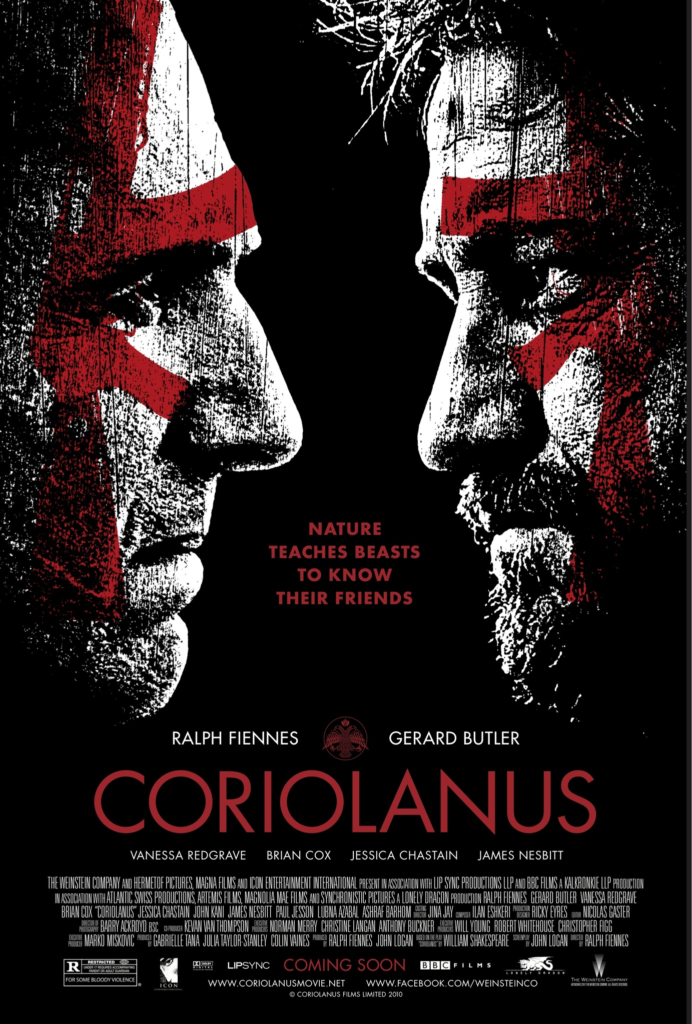
There are handful of screenplays adapted from William Shakespeare available to read online, though sadly not as many as I might wish. My favorite is actually based on one of his lesser-known plays. Coriolanus himself is a notoriously hard protagonist to like with his violent nature, his defiant pride and his cruel contempt for the common people.[4]Whether Shakespeare agreed with the snobbery of his patrician characters in Coriolanus is hard to say. The citizens are shown to be pathetically gullible and easily swayed. But when they’re not … Continue reading But while I don’t approve of many of his actions and attitudes, I do like him in a weird way and pity him. Maybe it’s because I relate to many of his character flaws[5]His lack of people skills leads me to think he has Asperger’s Syndrome like myself. unlike those of Shakespeare’s more popular tragic heroes, like Hamlet, Romeo, Cleopatra and King Lear, whom I mainly tolerate for the many great quotes they’ve given the world. Corionalus has one of the most powerful endings in Shakespeare in which we see both how much the main character is able to bend and how much he hasn’t changed at all. The latter might be the real tragedy of Coriolanus.
Logan’s screenplay does a magnificent job of expanding on Shakespeare’s minimalistic stage directions. His descriptions of the characters are all on point. The updating of the time period makes much more sense than other modern dress versions of Shakespeare plays, though maybe that’s more thanks to the source material than to this adaptation. The script also excels at rearranging and cutting the fat, so to speak, from Shakespeare’s text while still being loaded with great quotes. It’s about as accessible to modern audiences as possible without dumbing anything down. A couple of memorable details, Coriolanus’s son chasing and “mammocking” a butterfly and a poor man in enemy territory showing Coriolanus kindness, are shown rather mentioned. The script flows like a movie, not a stage play, yet it’s as Shakespearean in its content as you could wish. I haven’t actually watched the movie itself, apart from clips, due to the bloody, gruesome nature of the beast and my own squeamish stomach. But if it lives up to the screenplay’s potential, it’s awesome.
Great Expectations (2012) by David Nicholls
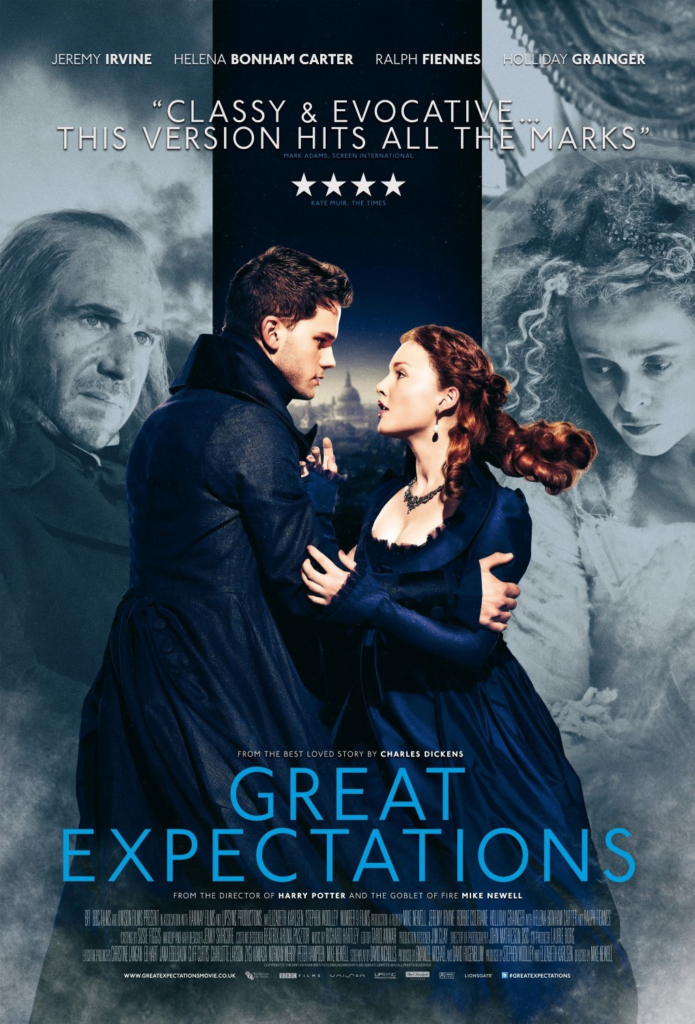
Unlike The Personal History of David Copperfield, this screenplay stays very true to story and spirit of its Dickensian source material, though it arguably had an easier job since Great Expectations, while a complex work in many ways, is dramatically tighter and has fewer subplots than other doorstoppers by Charles Dickens. Nicholls does justice to all the different aspects of the book, the humorous, the tragic, the creepy and the heartwarming.[6]By contrast, the acclaimed 1946 movie does a great job with the creepy aspects but not with the heartwarming. The plot is certainly compressed compared to the slow paced novel, particularly the last act, but it never feels compressed if you know what I mean. I do have a minor problem with how it drops a redemptive act on the part of Pip and Miss Havisham. But it’s amazing just how much of the plot it includes without feeling crammed. I have a bigger problem with how it compromises the character of Estella, implying that she’s much more capable of love than she admits.[7]The creepy character of Mr. Jaggers also ends up being softened but I don’t mind that much. But that’s less of a problem reading the script than it is watching the movie. This one of those screenplays where I love the movie that plays in my head when I read it much more than the one that was actually made from it. The script includes some great scenes and lines for Herbert Pocket and Biddy, the wisest character in the book, which should not have been cut in my opinion.[8]In the movie’s defense though, cutting a pointless scene of Pip and Herbert holding a housewarming party was the right decision and the movie has a great line from Joe Gargery that isn’t … Continue reading
Little Women (2019) by Greta Gerwig

I feel like I’ve written enough about this script already.
Miserables, Les (2012) by William Nicholson and Herbert Kretzmer

Sense and Sensibility (1995) by Emma Thompson
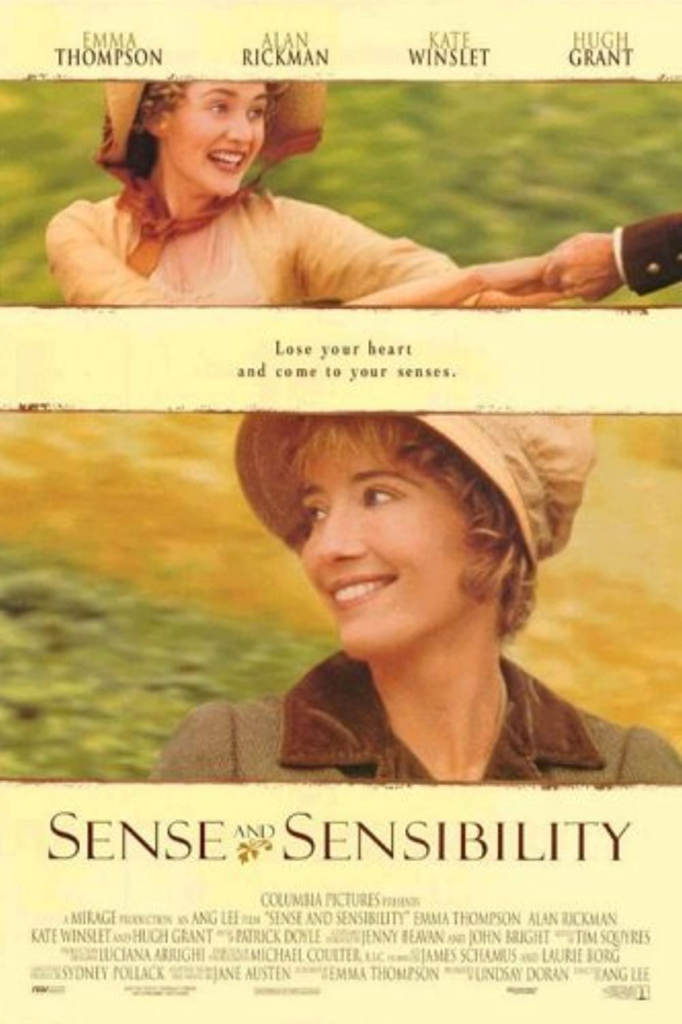
As I wrote in a previous post, I find this movie to be quite drab and lifeless to watch[9]To be fair, a movie set in England during the summer may inevitably be too drab looking., but the published screenplay is wonderfully fun and engaging to read. It’s full of witty lines and humorous characters that either are from Jane Austen or feel like they could have been. (In the one of the many great lines and scenes that were shamefully cut from the final film, a dying man, discussing the future of their daughters with his wife, says that the youngest “will go to sea and become a pirate so we need not concern ourselves with her.”) But Thompson also brings a warmth and humanity to the material which I don’t usually associate with Austen’s aloof prose style. Despite its anti-drama queen message, Sense and Sensibility arguably has one of its author’s more dramatic plots and the script takes full tearjerking advantage of that.
If I have a problem with this adaptation[10]Of course, I’m just a casual fan of Austen. The “real” fans are notoriously hard to please and could tell you more problems., it’s that it makes the character of Col. Brandon too obviously a romantic hero from the beginning, long before we learn his melodramatic backstory. Having him come across as awkward and unappealing at first and having his true nature be a twist, as in the book, would have been more interesting.[11]And I think he could easily have attracted fangirls anyway. But I have to give Thompson credit for staying as true as she does to the message of the source material, that letting one’s emotions be unrestrained leads to suffering not only for others but for oneself. This wasn’t very popular in the 1990s and has become even less so now when bottling up emotions is seen as dysfunctional. While this script probably leans a little more into the idea that it’s OK to be emotionally vulnerable once in a while, it’s amazing how relatively little the original message is compromised. It’s something modern people might not want, but probably need, to hear.
References
| ↑1 | Well, the last one might be true, come to think of it. |
|---|---|
| ↑2 | I can understand why he’s attracted to her but not why she’s so into him. |
| ↑3 | There are actually two drafts of the script to read online, the shooting script and an earlier one. I believe the final script was the best on the whole but there are some interesting things about the older one. It’s worth checking out if you’re a fan. |
| ↑4 | Whether Shakespeare agreed with the snobbery of his patrician characters in Coriolanus is hard to say. The citizens are shown to be pathetically gullible and easily swayed. But when they’re not formed into a mob (“the beast with many heads”), their dialogue demonstrates that at least some of them can be reasonable and even insightful. In any case, John Logan’s script leans toward sympathizing with the common people but it doesn’t back away from their dark side. |
| ↑5 | His lack of people skills leads me to think he has Asperger’s Syndrome like myself. |
| ↑6 | By contrast, the acclaimed 1946 movie does a great job with the creepy aspects but not with the heartwarming. |
| ↑7 | The creepy character of Mr. Jaggers also ends up being softened but I don’t mind that much. |
| ↑8 | In the movie’s defense though, cutting a pointless scene of Pip and Herbert holding a housewarming party was the right decision and the movie has a great line from Joe Gargery that isn’t in the script and may have been an adlib. |
| ↑9 | To be fair, a movie set in England during the summer may inevitably be too drab looking. |
| ↑10 | Of course, I’m just a casual fan of Austen. The “real” fans are notoriously hard to please and could tell you more problems. |
| ↑11 | And I think he could easily have attracted fangirls anyway. |
